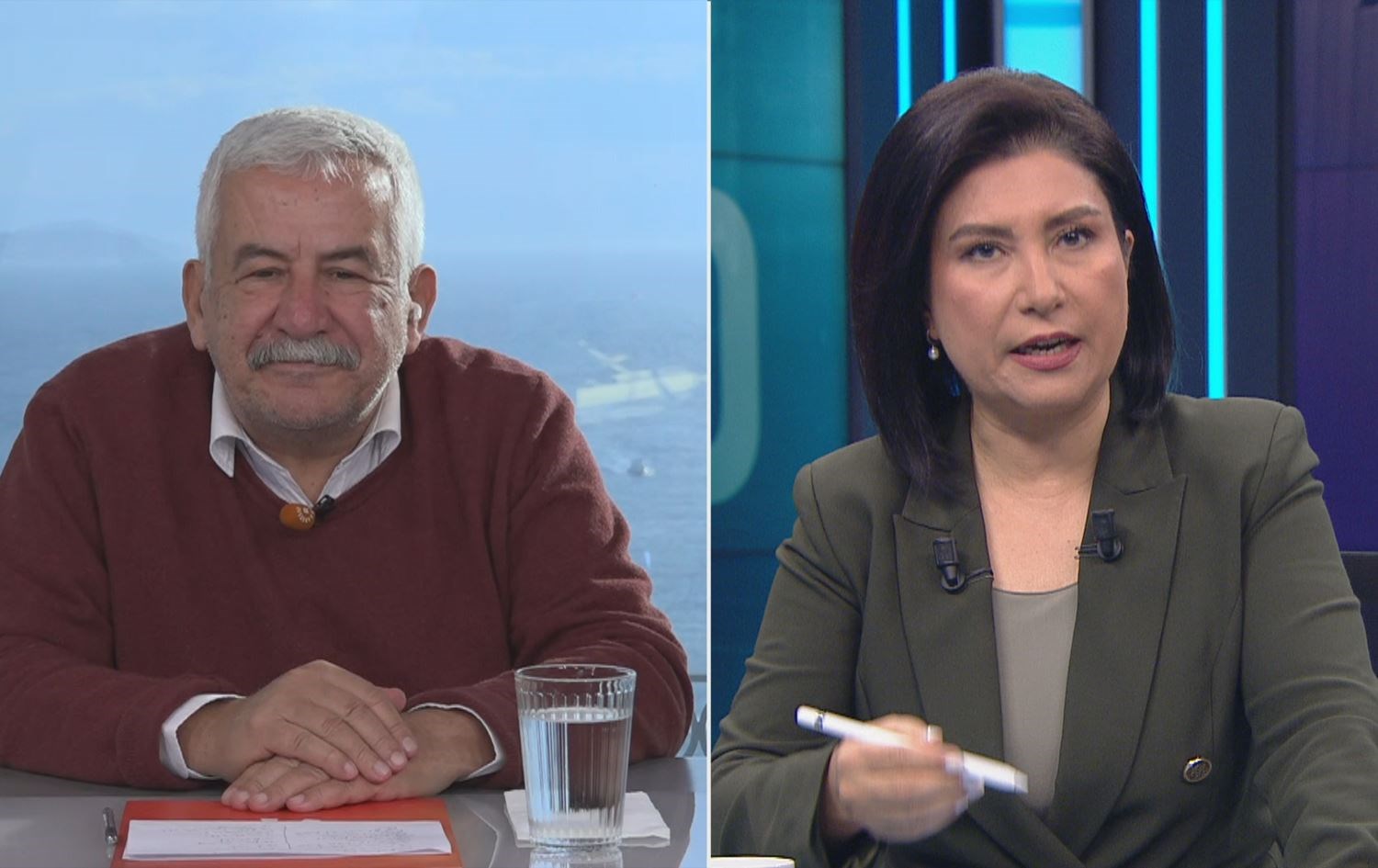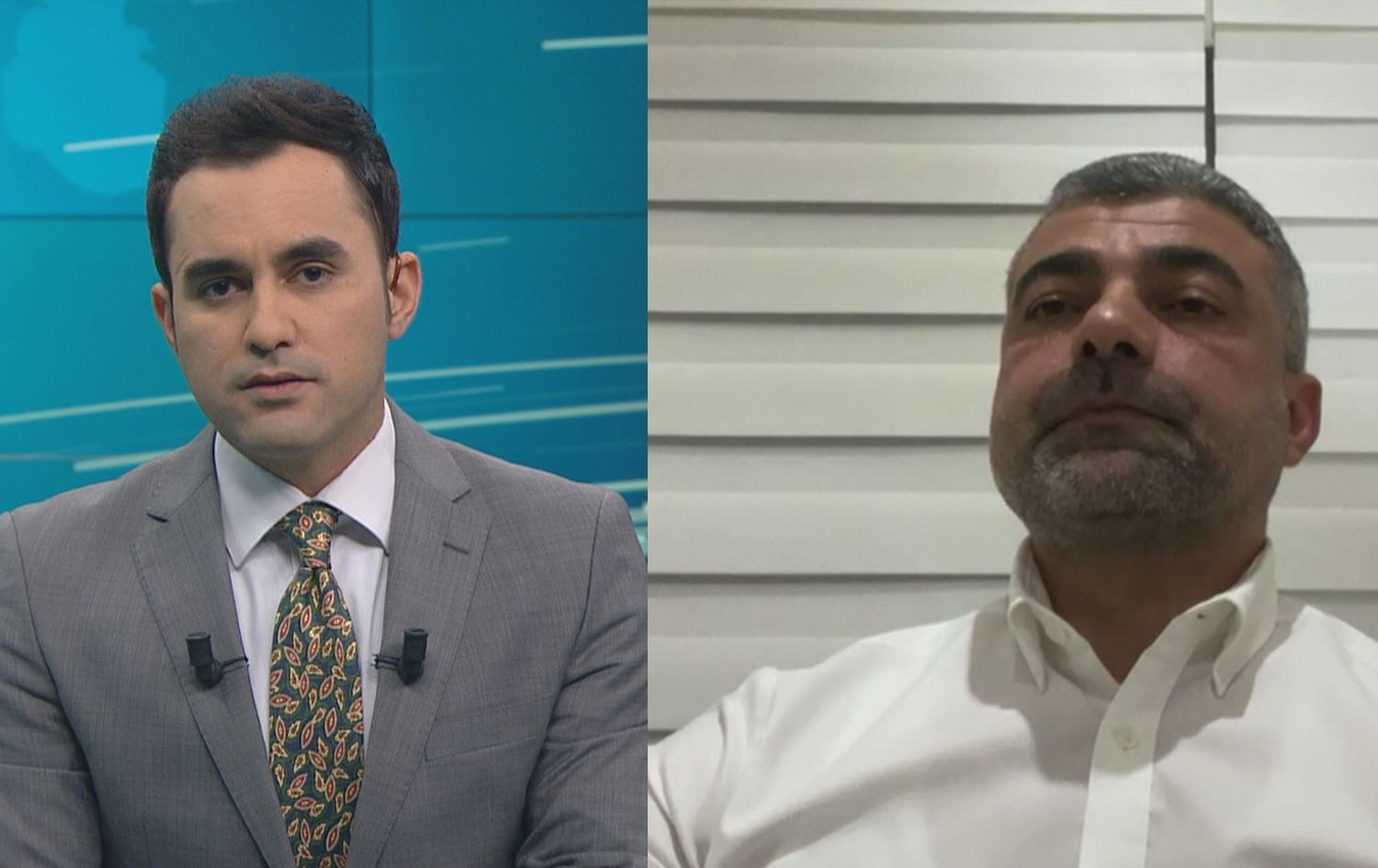
DEM Party delegation visiting MHP leader Devlet Bahceli in Ankara on January 2, 2024. Photo: AA
ERBIL, Kurdistan Region - With Turkey on the brink of a possible new peace process between the Kurdistan Workers’ Party (PKK) and the state, there is hope that a general amnesty may be forthcoming for thousands of people jailed because of alleged links to the armed group.
The initiative for peace came from a surprising corner - the far-right Nationalist Movement Party (MHP) leader Devlet Bahceli, whose party is an ally of Turkish President Recep Tayyip Erdogan’s Justice and Development Party (AKP) and had previously opposed talks with the PKK. Late last year, he said that jailed PKK leader Abdullah Ocalan should benefit from the “right to hope” law that says a prisoner should have hope for their eventual release.
Turkish politician Ufuk Uras said this could mean a general amnesty.
“In my prediction, what is called the ‘right of hope’ is not for just one person. Meaning it's not limited to only Abdullah Ocalan and is a general right. I believe there's a possibility that within this framework, a legal correction like an amnesty could be made,” he told Rudaw on Friday.
There is precedence for this, he argued, “because in the history of the Republic, the 10th and 50th years were seen as periods symbolizing amnesty. Therefore, as part of the process, such a political amnesty and a new beginning could be considered.”
The pro-Kurdish Peoples’ Equality and Democracy Party (DEM Party) is laying the groundwork for peace talks. Last week, two lawmakers, Pervin Buldan and Sirri Sureyya Onder, were granted rare access to Imrali prison to meet Ocalan.
Through them, Ocalan sent a message that highlighted Kurdish-Turkish “brotherhood” and said he is able to make the call regarding the future of the PKK and a potential peace process.
On Thursday, Buldan and Onder were joined by veteran Kurdish politician Ahmet Turk and the three kicked off a series of meetings with Turkish political authorities. They first met with Numan Kurtulmus, speaker of the parliament, and then with MHP’s Bahceli.
A member of the ruling AKP said it is not the right time for an amnesty.
"It is too early to discuss general amnesty in Turkey. We need to see how peace steps and dialogue proceed, but Turkey as a state and the president, with a statesman-like approach, will take all paths toward harmony and problem-solving,” Faruk Kilic told Rudaw on Friday.
“What's important here is what Ocalan says. In my opinion, Ocalan wanted to stop this bloodshed even before, and his position was the same during the other resolution process, but they didn't listen to him. However, in the current situation, I say that the Kurdish people won't leave Ocalan's messages on the ground and this will lead to stopping this bloodshed,” he said.
“All parties support resolving issues through peaceful means, and no party wants conflict, war, and complications to continue,” he added.
Ankara “considers resolving the Kurdish issue its responsibility, and everyone agrees that within the framework of the Turkish state, everyone's rights should be protected and respected,” Kilic said, noting that Erdogan is “striving to strengthen Turkish-Kurdish brotherhood and is working to solve problems with a statesman-like approach."
Founded in 1978, the PKK initially called for the establishment of an independent Kurdistan but now calls for autonomy. The group is designated a terrorist organization by Turkey.
DEM Party’s predecessor, the Peoples’ Democratic Party (HDP), played a key role in negotiating peace talks a decade ago. The short-lived ceasefire collapsed in 2015 and was followed by intense urban fighting in Turkey’s southwestern Kurdish areas.
Ocalan has been kept in the island prison since 1999. He is in good health and his morale is high, according to the MPs who visited him.
In his message sent through the visiting MPs, Ocalan called on all political fronts in Turkey to contribute to the peace process by “making positive contributions” and said the parliament could be an important platform for change.
Bahceli has proposed Ocalan be invited to address parliament and announce the dissolution of the PKK.
By indicating the parliament as a key interlocutor, Ocalan is seeking a “legal basis for resolving issues,” according to Ziryan Rojhelati, director of Rudaw Research Center.
He believes the Kurdish region in northeast Syria (Rojava) could also play a key role in peace talks.
“In 2015, the resolution process in Turkey was suspended due to developments in Western Kurdistan [Rojava], and now similarly, due to the situation in Syria and Western Kurdistan, a new phase of dialogue and peace efforts has emerged in Turkey and Northern Kurdistan,” he said.
In 2015, protesters called for Turkey to open its borders for Kurds who were fighting the Islamic State (ISIS) in the border town of Kobane, northeast Syria. The nation-wide protests turned violent and a subsequent trial put numerous Kurdish politicians in jail on charges of inciting violence, including Ahmet Turk who was sentenced to ten years in jail in May for his alleged involvement in the protests. This led to him losing his position as mayor of Mardin in November.
AKP’s Kilic agreed that what happens in Syria will impact Turkey. A coalition of rebel groups spearheaded by the Hay’at Tahrir al-Sham (HTS) last month toppled Bashar al-Assad’s regime and installed a transitional government. The Kurdish administration in Rojava is now in talks with the new authorities in Damascus.
“We cannot separate the Kurdish issues of Iraq, Syria, and Turkey from each other. When we talk about one, we talk about all of them,” said Kilic.
Ankara considers Kurdish forces in Rojava as the Syrian offshoot of the PKK and frequently engages them militarily.
Kilic said statements from Erdogan and Bahceli indicate that they want Syrian Kurds to coordinate with the new government in Damascus. “Everyone should obtain certain rights within their own country. These matters should be handled with brotherhood,” he said.









Comments
Rudaw moderates all comments submitted on our website. We welcome comments which are relevant to the article and encourage further discussion about the issues that matter to you. We also welcome constructive criticism about Rudaw.
To be approved for publication, however, your comments must meet our community guidelines.
We will not tolerate the following: profanity, threats, personal attacks, vulgarity, abuse (such as sexism, racism, homophobia or xenophobia), or commercial or personal promotion.
Comments that do not meet our guidelines will be rejected. Comments are not edited – they are either approved or rejected.
Post a comment